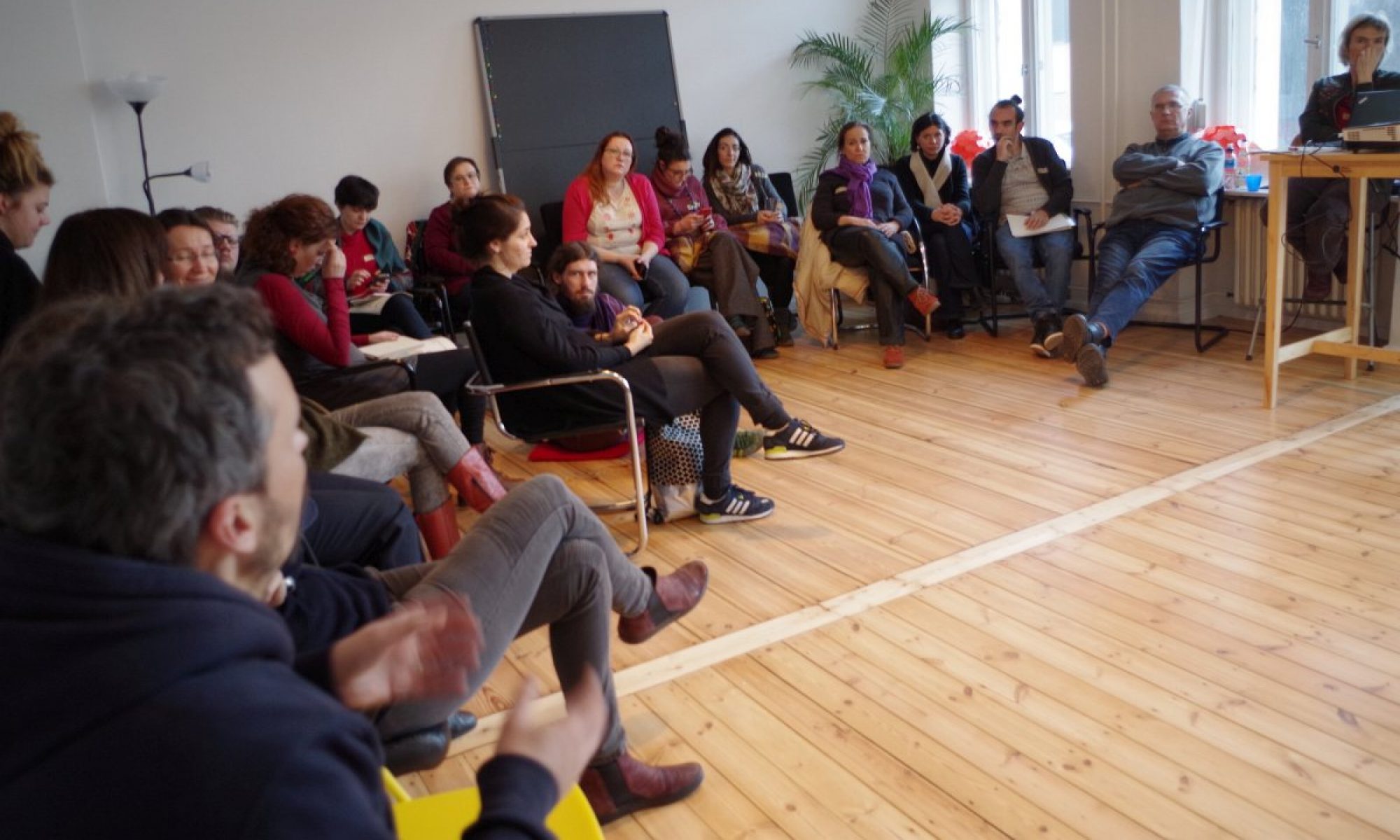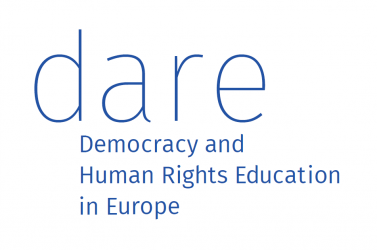- A common statement of EACEA and DARE
- April 2006
The outcomes of the European Year of Citizenship through Education have to be compared with the objectives which have been put as a vision for “learning and living democracy”. Education for democratic citizenship and human rights has been announced to highlighting any educational system and explicitly as a challenge for any national and European educational policy.
According to the Council of Europe Education for Democratic Citizenship
(EDC) and Human Rights Education (HRE) contribute to social cohesion, to mutual understanding, to intercultural and interreligious dialogue. The twin fields of EDC and HRE promote the principle of equity of men and women
and encourage harmonious, peaceful relationships between the people. They defend and develop a democratic society and culture.
These quotations of official documents describe an ambitious
understanding of EDC and HRE and examine the high expectati
ons connected with a comprehensive impact on society.
What is reality and what – according to our view and experiences – is left to be done?
1. Taking seriously into consideration the fulfilment of the above quoted tasks
with the expected outreach into society the field of non-formal education is neglected, even more: ignored at European and at national level. Activities focus on school curricula, which with no doubt are important, but address young people in a learning environment which often is counterproducti
ve to “learning and living democracy”. Starting with non formal youth education EDC and HRE have to have a priority in any kind of adult education. It has to be in tegral part of Life Long Learning.
2. In this context we remind of the experiences and competences of a wide range of NGOs in all European countries which
- focus their education on democracy and human rights,
- address all parts of the population,
- develop tailor made programmes for all kind of target groups,
- have the know how to promote a comprehensive approach of
knowledge, values and behaviour, - encourage and facilitate the encounter of cultures, religions, ages and
people of different social background.
In programmes of NGOs people meet who never have the opportunity to
get in touch with each other.
3. The European Year 2005 was an incentive to be informed of this environment, but it opened a view on deficiencies rather than on achievements. National policies often took up the rhetoric, but without involving NGOs or using their potential supportIn many cases the priorities for national activities have been not transparent. As a result the outreach of the European Year was less successful than expected. The public awareness of objectives and issues was limited.
4. The Berlin-conference “EYCE 2005: National Experiences – European
Challenges” was organised in December 2005 by BpB (German Federal Agency for Civic Education), DARE (Network for Democracy and Human Rights Education in Europe), EAEA (European Association for the Education of Adults) and the Austrian Ministry for Education, Science and Culture. The conference was an initiative that was not on the official agenda of the European Year, but tried to respond to these identified deficiencies. A European community of 282 stakeholders from 41 countries attended the conference, representing in their majority NGOs, but also research institutions, schools, national and European policy makers. The conference gathered
evidence from national states of the art in EDC and HRE and introduced examples of good practice. Trainings in major fields of EDC and HRE such as conflict transformation or gender equality were offered. Last, but not least the conference was a platform for getting in touch amongst professionals, for exchanging experiences and networking future cooperation. Although the prerequisites at national level differ considerably with regard to institutional, structural and legislative frames, histories and traditions, the range of
activities and programmes, recognition and impact there is – throughout Europe – an amazing commitment to promote EDC and HRE. In order to
use these potentials and competences and to provide an educatio
nal environment that opens access to “learning and living democracy”
to all parts of the population regardless of their age and educational background the conference made clear that it is necessary:
- To link in a better way “top down” European and national policies and “bottom up” activities. The major part of education for democracy and human rights is
done by independent NGOs. They have to be enabled to plan on the long run
and to perform their programmes and projects in a reasonable, sustainable
way without permanent self-exploitation at the edge of existence. This means:
to fund and secure an infrastructure of EDC and HRE by national governments
and European programmes. - To improve national and European conditions and to counteract the shortage
and destruction of existing structures. - To improve networking between stakeholders and practitioners of EDC and
HRE at national and European level. It means not only to build cooperation,
but also to handle the delicate problem of competition, mainly between
national institutions. - To improve cooperation between the formal and the non-formal education
system, especially between schools and non formal youth education. This is
essential for a complementary approach in learning democracy. Innovative
methods have been developed in out-of-school education since decades.o improve recognition between research and action, researchers and practitioners of EDC and HRE, thus opening new ways and views of
cooperation and promoting synergies. - To establish and mainstream EDC and HRE as integral part of all education
systems and concepts at national and European level.
With the EDC-programme since 1997 and the European Year of Citizenship through Education 2005 the Council of Europe initiated a remarkable impulse for raising awareness for a vivid democratic culture in Europe. It was agreed upon that education for democratic citizenship and human rights is a fundamental prerequisite for the key objective of the Council of Europe to promote a free, just and tolerant society.
In order to approach this objective democracy has to educate democrats. Learning for democracy does not end with leaving school, but has to be learned and lived at every age and reinterpreted by each gene ration. Democracy needs convinced and convincing citizens who stand for its principles and values.
A dialogue with all citizens has to be developed at the grass-root level.
NGOs stand for this kind of participative learning with their experience, competences and commitment. But they need support, recognition and continuity for this long-term challenge.
Berlin, 29 March 2006
Hannelore Chiout
Chair of DARE network
Brussels, 29 March 2006
Ellinor Haase
General Secretary of EAEA

